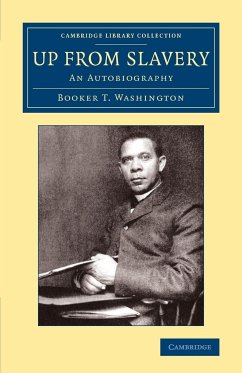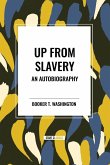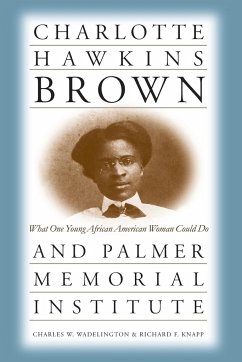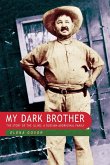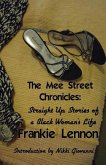Booker T. Washington
Up from Slavery
Booker T. Washington
Up from Slavery
- Broschiertes Buch
- Merkliste
- Auf die Merkliste
- Bewerten Bewerten
- Teilen
- Produkt teilen
- Produkterinnerung
- Produkterinnerung
The 1901 autobiography of an influential African-American educator and community leader, setting out his philosophy of vocational education and non-confrontation.
Andere Kunden interessierten sich auch für
![Hierarchical Structures and Social Value Hierarchical Structures and Social Value]() Richard WilliamsHierarchical Structures and Social Value36,99 €
Richard WilliamsHierarchical Structures and Social Value36,99 €![Up from Slavery Up from Slavery]() Booker T. WashingtonUp from Slavery13,99 €
Booker T. WashingtonUp from Slavery13,99 €![Charlotte Hawkins Brown and Palmer Memorial Institute Charlotte Hawkins Brown and Palmer Memorial Institute]() Charles W. WadelingtonCharlotte Hawkins Brown and Palmer Memorial Institute41,99 €
Charles W. WadelingtonCharlotte Hawkins Brown and Palmer Memorial Institute41,99 €![My Father's Hands My Father's Hands]() Ruth A. Haugh-SmithMy Father's Hands12,99 €
Ruth A. Haugh-SmithMy Father's Hands12,99 €![My Dark Brother My Dark Brother]() Elena GovorMy Dark Brother42,99 €
Elena GovorMy Dark Brother42,99 €![Civil Rights Childhood Civil Rights Childhood]() Jordana Y. ShakoorCivil Rights Childhood41,99 €
Jordana Y. ShakoorCivil Rights Childhood41,99 €![The Mee Street Chronicles The Mee Street Chronicles]() Frankie LennonThe Mee Street Chronicles14,99 €
Frankie LennonThe Mee Street Chronicles14,99 €-
-
-
The 1901 autobiography of an influential African-American educator and community leader, setting out his philosophy of vocational education and non-confrontation.
Hinweis: Dieser Artikel kann nur an eine deutsche Lieferadresse ausgeliefert werden.
Hinweis: Dieser Artikel kann nur an eine deutsche Lieferadresse ausgeliefert werden.
Produktdetails
- Produktdetails
- Verlag: Cambridge University Press
- Seitenzahl: 346
- Erscheinungstermin: 4. November 2014
- Englisch
- Abmessung: 216mm x 140mm x 20mm
- Gewicht: 489g
- ISBN-13: 9781108079402
- ISBN-10: 1108079407
- Artikelnr.: 41609352
- Herstellerkennzeichnung
- Libri GmbH
- Europaallee 1
- 36244 Bad Hersfeld
- gpsr@libri.de
- Verlag: Cambridge University Press
- Seitenzahl: 346
- Erscheinungstermin: 4. November 2014
- Englisch
- Abmessung: 216mm x 140mm x 20mm
- Gewicht: 489g
- ISBN-13: 9781108079402
- ISBN-10: 1108079407
- Artikelnr.: 41609352
- Herstellerkennzeichnung
- Libri GmbH
- Europaallee 1
- 36244 Bad Hersfeld
- gpsr@libri.de
Booker Taliaferro Washington (April 18, 1856 - November 14, 1915) was an American educator, author, orator, and adviser to multiple presidents of the United States. Between 1890 and 1915, Washington was the dominant leader in the African American community and of the contemporary black elite.[1] Washington was from the last generation of black American leaders born into slavery and became the leading voice of the former slaves and their descendants. They were newly oppressed in the South by disenfranchisement and the Jim Crow discriminatory laws enacted in the post-Reconstruction Southern states in the late 19th and early 20th centuries. Washington was a key proponent of African-American businesses and one of the founders of the National Negro Business League. His base was the Tuskegee Institute, a historically black college in Tuskegee, Alabama. As lynchings in the South reached a peak in 1895, Washington gave a speech, known as the "Atlanta compromise", which brought him national fame. He called for black progress through education and entrepreneurship, rather than trying to challenge directly the Jim Crow segregation and the disenfranchisement of black voters in the South. Washington mobilized a nationwide coalition of middle-class blacks, church leaders, and white philanthropists and politicians, with a long-term goal of building the community's economic strength and pride by a focus on self-help and schooling. With his own contributions to the black community, Washington was a supporter of Racial uplift. But, secretly, he also supported court challenges to segregation and restrictions on voter registration.[2] Black activists in the North, led by W. E. B. Du Bois, at first supported the Atlanta compromise, but later disagreed and opted to set up the National Association for the Advancement of Colored People (NAACP) to work for political change. They tried with limited success to challenge Washington's political machine for leadership in the black community, but built wider networks among white allies in the North.[3] Decades after Washington's death in 1915, the civil rights movement of the 1950s took a more active and progressive approach, which was also based on new grassroots organizations based in the South, such as Congress of Racial Equality (CORE), the Student Nonviolent Coordinating Committee (SNCC) and Southern Christian Leadership Conference
Preface
1. A slave among slaves
2. Boyhood days
3. The struggle for an education
4. Helping others
5. The reconstruction
6. Black race and red race
7. Early days at Tuskegee
8. Teaching school in a stable and a hen-house
9. Anxious days and sleepless nights
10. A harder task than making bricks without straw
11. Making their beds before they could lie on them
12. Raising money
13. Two thousand miles for a five minute speech
14. The Atlanta Exposition address
15. The secret of success in public speaking
16. Europe
17. Last words
Index.
1. A slave among slaves
2. Boyhood days
3. The struggle for an education
4. Helping others
5. The reconstruction
6. Black race and red race
7. Early days at Tuskegee
8. Teaching school in a stable and a hen-house
9. Anxious days and sleepless nights
10. A harder task than making bricks without straw
11. Making their beds before they could lie on them
12. Raising money
13. Two thousand miles for a five minute speech
14. The Atlanta Exposition address
15. The secret of success in public speaking
16. Europe
17. Last words
Index.
Preface
1. A slave among slaves
2. Boyhood days
3. The struggle for an education
4. Helping others
5. The reconstruction
6. Black race and red race
7. Early days at Tuskegee
8. Teaching school in a stable and a hen-house
9. Anxious days and sleepless nights
10. A harder task than making bricks without straw
11. Making their beds before they could lie on them
12. Raising money
13. Two thousand miles for a five minute speech
14. The Atlanta Exposition address
15. The secret of success in public speaking
16. Europe
17. Last words
Index.
1. A slave among slaves
2. Boyhood days
3. The struggle for an education
4. Helping others
5. The reconstruction
6. Black race and red race
7. Early days at Tuskegee
8. Teaching school in a stable and a hen-house
9. Anxious days and sleepless nights
10. A harder task than making bricks without straw
11. Making their beds before they could lie on them
12. Raising money
13. Two thousand miles for a five minute speech
14. The Atlanta Exposition address
15. The secret of success in public speaking
16. Europe
17. Last words
Index.

